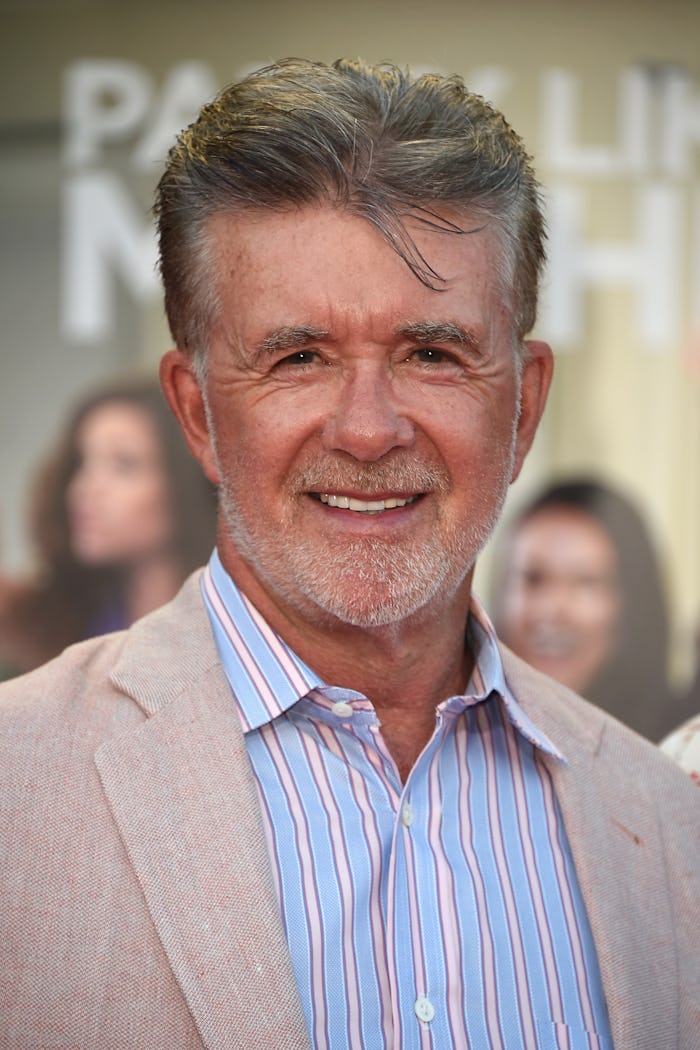Entertainment

Alan Thicke On 'Growing Pains' Taught Me Everything I Needed To Know About Being A Dad
The sitcom dads of the mid-1980s changed our understanding of what it means to be a father. Take Tony Danza’s Tony Micelli from Who’s the Boss: not only was he a world-class softball slider, but he was also a dad who took up housekeeping to make ends meet for him and his daughter. The Cosby Show’s Cliff Huxtable was a successful doctor, but he was also a goofy dad who picked the kids up from school and handled the chores. He also clearly knew full well that his wife Claire Huxtable, a high-powered lawyer, was really the one running the show. (Oh, Claire, if only you could have given the real-life Bill Cosby a much deserved ass-kicking.)
Then there was Dr. Jason Seaver, the patriarch from Growing Pains, who moved his psychiatry practice into his home so his wife Maggie (Joanna Kerns) could pursue her career. Alan Thicke, who passed away on Tuesday night at the age of 69, played the role of TV dad with humor, empathy and sternness when necessary, yet the Seavers' marriage also served as a shining example of an equitable (dare I say, feminist?) parenting model. As Dr. Seaver, Thicke broke the mold in terms of how we view modern TV dads, not to mention modern dads in general.
For the most part, TV dads of previous generations either sat in armchairs and barked racial slurs while their wives waited on them hand or foot, or they were totally absent from the day-to-day goings-on of their household, à la Father Knows Best. Dr. Seaver was the definition of a hands-on parent who was fully involved in his children’s upbringing — and, perhaps most significantly in the post-feminist era, he was willing to relocate his practice so his wife could pursue her own career. In fact, by the end of the series, when his wife Maggie is offered a job in Washington, D.C., he was willing to uproot the entire family to move there, because he knew she couldn't pass up the opportunity.
Because of dads like Jason Seaver, kids of my generation finally started to become familiar with a world in which men are encouraged to make sacrifices for the benefit of their partners and their children.
Because of dads like Jason Seaver, kids of my generation finally started to become familiar with a world in which men make sacrifices for the benefit of their partners and their children. That’s no small task in a world where men were often portrayed as the breadwinners of the family, who were only in charge of fixing themselves a drink after work while waiting for their wives to make them dinner. Yet here was Jason Seaver, sharing parenting responsibilities in equal measure with his wife, and teaching his kids about such topics as death, drinking and driving, peer pressure and suicide.
As a new dad, I find myself looking back at some of those TV Dad moments to see how I stack up next to them. When I think of Growing Pains, I think about how available Dr. Seaver made himself to his kids, sneaking life lessons in between jump shots on that old ratty rim above the garage. When his daughter, Carol Seaver, got in the car with a drunk driver, only to suffer dire consequences, we saw a father unhinged at the thought of what could have happened to her, while still remaining calm and deliberate. This is how any father would hope to act in these situations, and as the father of a daughter, I feel like I'm more aware of that than ever before.
As I embark on my first full year of parenthood, I’d like to think that the influence of TV dads like Jason Seaver has rubbed off on me and men of my generation. Hell, I married a lawyer who is as smart as she is beautiful, and believe me when I tell you, I’m ready to quit my job to become a stay-at-home dad once she becomes a multi-millionaire. And while I’m not prepared to sit here and tell you with a straight face that I’m a great dad because of TV shows like Growing Pains, I would have no qualms admitting that seeing a modern, equitable, gender-balanced model of parenting during my most impressionable years didn’t hurt.
Alan Thicke was an exemplary dad on TV, and he seemed like a great dad in real life as well: his first priority was his sons, one of whom he was playing hockey with yesterday right before he passed away. Because he was a Canadian, I can’t think of a better way to go. I only wish I had Dr. Seaver here to break the news to me.